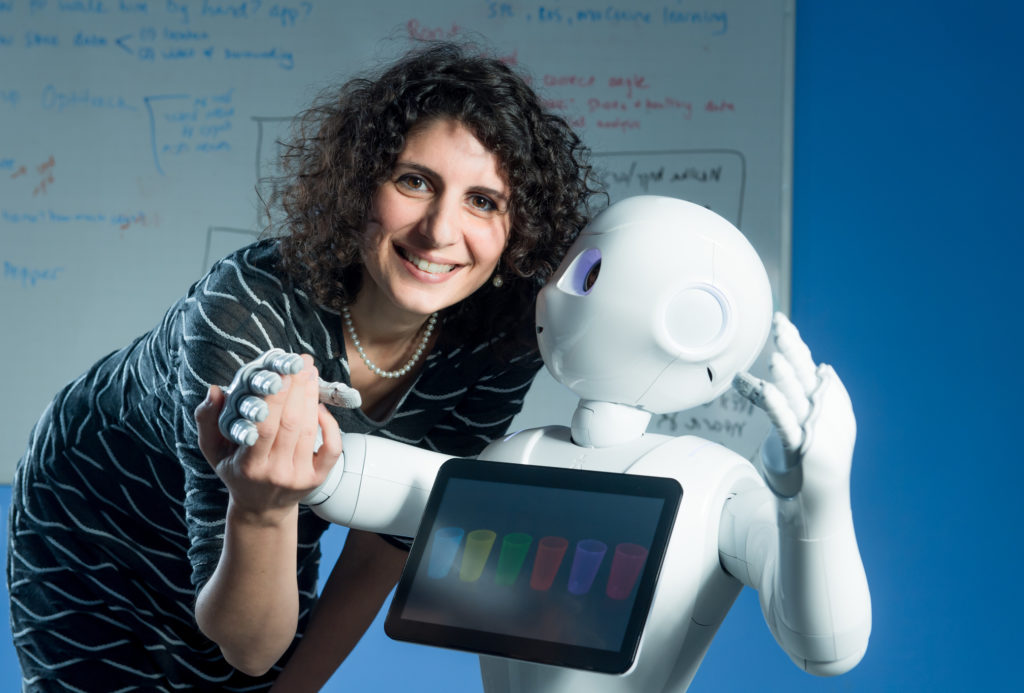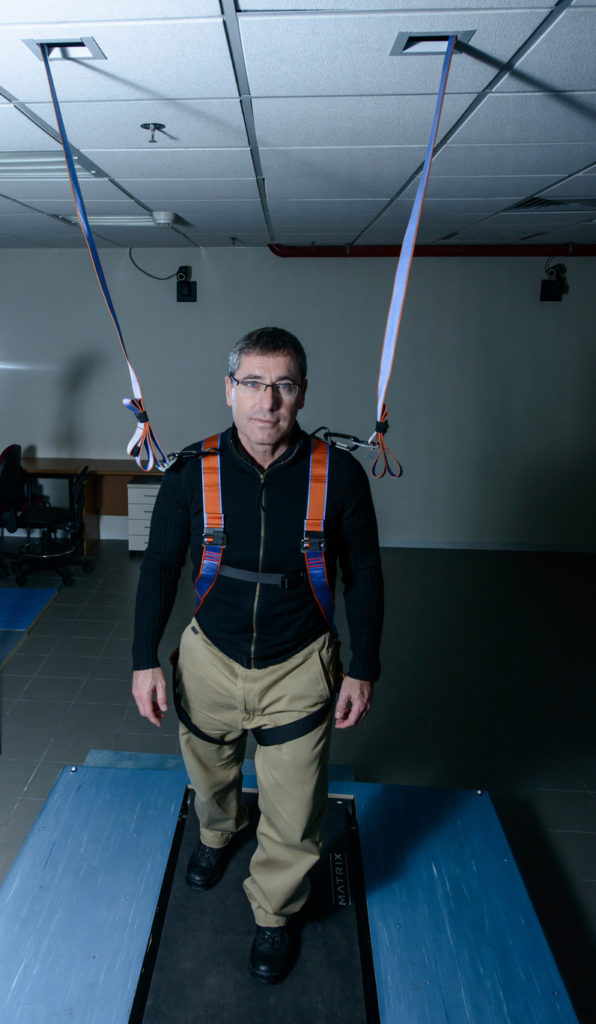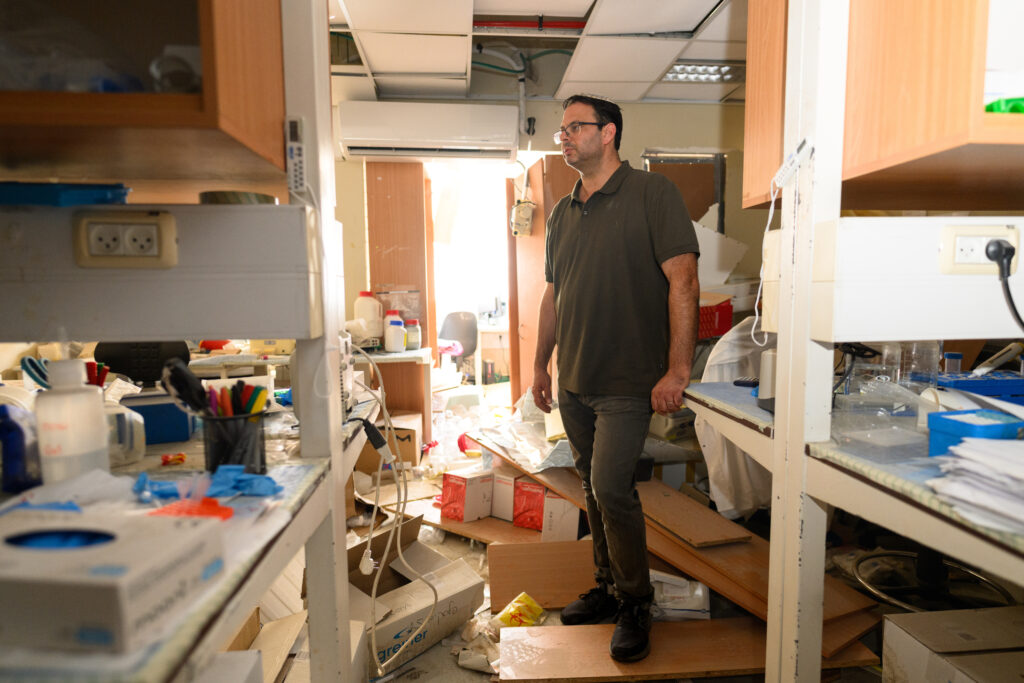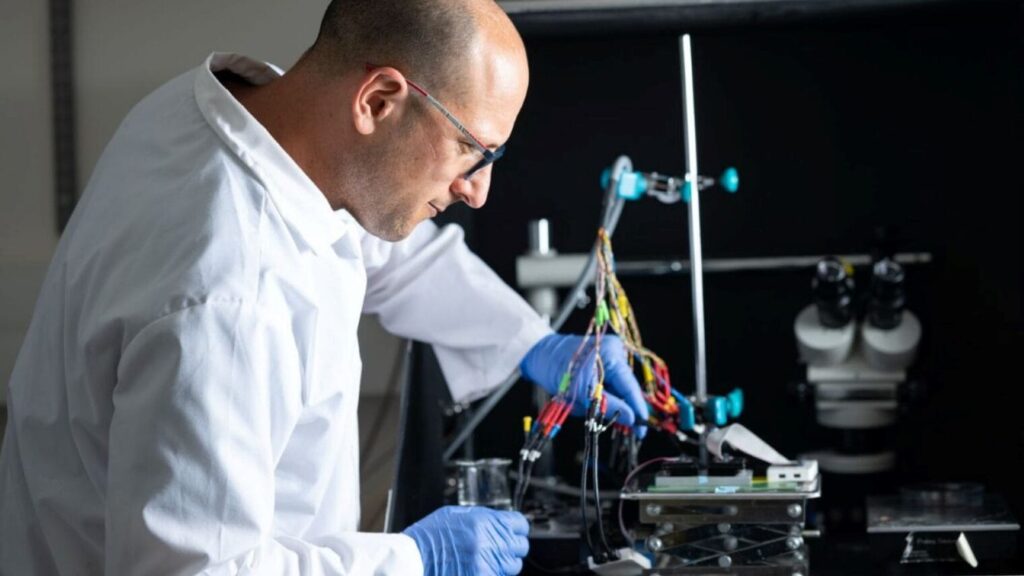
If You Fall, BGU Technology Will Catch You
If You Fall, BGU Technology Will Catch You
April 14, 2017
Medical Research, Robotics & High-Tech
Jewish Exponent — The future is here, and it involves your bubbe playing video games with a talking robot.
There is incredible technology coming out of Ben-Gurion University of the Negev for use in biomedical fields worldwide – artificial intelligence, robotics, neurosciences.
A lot of this technology is helping older adults. In fact, some is being used to rehabilitate patients or help restore their balance, giving them more control and freedom in their lives.
Dr. Shelly Levy-Tzedek, head of BGU’s Cognition, Aging and Rehabilitation (CAR) Lab and a lecturer in the Leon and Matilda Recanati School for Community Health Professions, is researching movement control using a child-sized interactive robot named Pepper.
Pepper is a humanoid robot created by SoftBank Robotics, a Japanese company, but Dr. Levy-Tzedek and her team bought one and are modifying it to help rehabilitate patients with Parkinson’s disease or those who suffered strokes.
The robot plays interactive games with the patient while talking to them. In a memory game, Pepper asks the patient to match a row of colored cups to that on the screen on its chest within a set time frame.
“It uses social cues, speech and movement in order to get the person to react,” says Dr. Levy-Tzedek.
“Training the muscles following strokes and regaining muscle strength is important, but not sufficient in order to regain function–the ability to perform this task that is lost. It can only be regained if you actually perform that function over and over again.”
Dr. Levy-Tzedek and her team ultimately want to develop facial recognition capabilities with Pepper.
“So it will say, ‘Hi Jane, good morning. How are you today? How was your grandson’s visit this weekend?’ It will have some more social aspect to it, and also know where you finished last week, how well you did last week, and start from that level,” says Dr. Levy-Tzedek.
Many physical therapy patients dismiss their “homework.” With Pepper, Dr. Levy-Tzedek wants to fill the gap between going to a physical therapist and having a partner that encourages patients to do the work at home while tracking overall performance.
“This is definitely not to replace a physical therapist. It’s an addition,” she says.
Prof. Itzhak Melzer, also of the Recanati School, created another addition to physical therapy. He developed the Balance Measure and Perturbation System (BaMPer) as a way to improve balance control for the elderly.
“One in three older adults over the age of 65 will fall,” explains Prof. Melzer. “For those 80 and over, the rate is one in two.”
The costs of falling are exponential — $20 billion a year in the U.S. goes to hip fractures, replacements and the like.
The BaMPer mechanism uses 16 infrared cameras to capture movement from all angles. A patient walks on a treadmill while attached to a harness. The treadmill moves and shifts randomly to simulate the unexpected feeling of falling, triggering one’s muscle memory and training them how to better improve their balance.
“When they lose their balance, they will be able to correct their balance and not fall on the floor,” says Prof. Melzer. “They will be able to recover from unexpected loss of balance as if they are young people.”
Loss of balance isn’t a linear regression as one ages. Many in their 50s may experience slight balance issues, but it is increased exponentially after the age of 60.
“After treatments of training, we saw that elderly people that conducted the training with perturbation were able to recover from balance loss better than those who just walked without perturbations,” Prof. Melzer notes.
BGU licensed the technology to the Israeli company MediTouch, who markets it as BalanceTutor. It is sold in several countries including Germany, Spain, China, Israel, Russia, and the United States.
Recently, Prof. Melzer teamed up with the Kinect system — Microsoft’s videogame tool that uses a motion sensor to interact on the screen without any intermediary controller — to see if that program can measure balance controls similarly for much cheaper.
“If you train people, they become younger in their balance reactions,” says Prof. Melzer. “Old people can learn new tricks.”
This post is excerpted from a story by Rachel Kurland, who recently participated in Americans for Ben-Gurion University’s 2017 Murray Fromson Media Fellowship.





